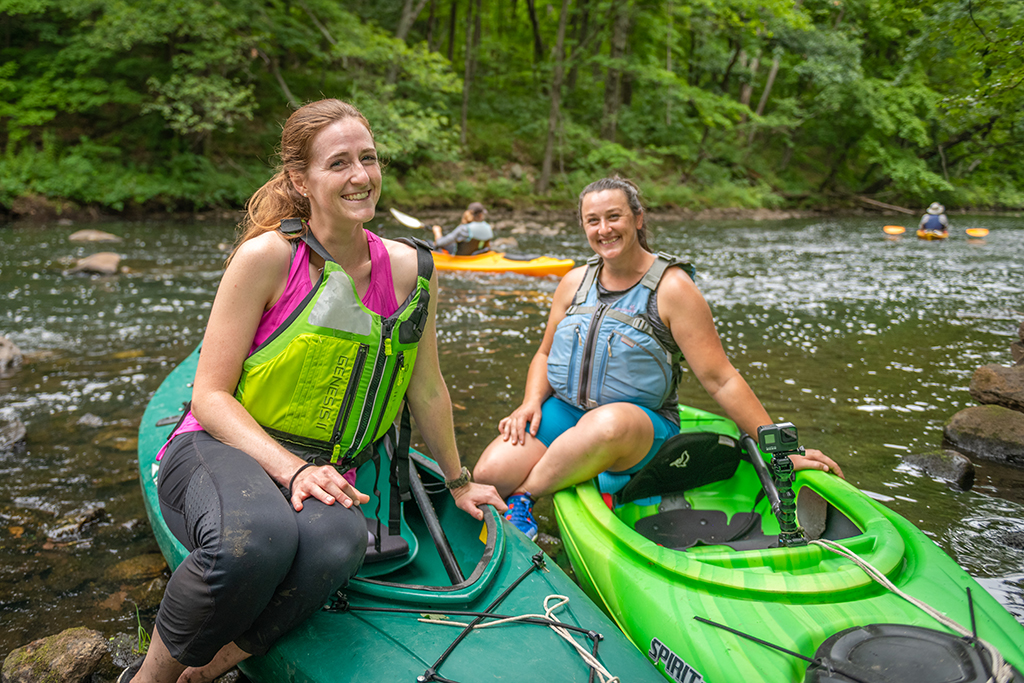Four days. Sixty miles. One river.

In mid-August, a group of people put their kayaks into the headwaters of the Blackstone River in Worcester and began paddling. Over the course of four days, they traveled 60 miles along the Blackstone, through its connection to the Seekonk River and on to Narragansett Bay in Providence, Rhode Island.
While the hearty band enjoyed good times along the way, recreation was not the trip’s primary goal. The Blackstone Commons Expedition was designed to draw attention to the ongoing challenges facing this historical watershed, including climate impacts, stormwater runoff, invasive species, equitable river access, and fish passage.
Key to organizing the expedition was the Blackstone Watershed Collaborative, created at the George Perkins Marsh Institute at Clark University to bring partners together to address water quality and climate resilience challenges in the region. Led by Stefanie Covino, M.S./ES&P ’15, the Collaborative combines the work of more than a hundred organizations to improve watershed health over the next five years. The group acknowledges and celebrates the work done in the past and identifies the actions needed to create a vibrant, resilient, and diverse future for the river.
Story continues after video
Covino and Katie Liming, M.S. ’22, an intern with the Blackstone Watershed Collaborative, were among the group who navigated the river from August 11 to 14. They met with stakeholders at a series of events that involved government and environmental officials, municipal leaders, business owners, wastewater treatment plant operators, volunteer water-quality monitors, and residents from surrounding communities who are concerned with the long-term viability of this valuable resource. Covino estimates that the group engaged with 400 people during the trip.
“This was the perfect year to do this expedition,” Covino said, “because it’s the 50th anniversary of the Clean Water Act and the 50th anniversary of ZAP the Blackstone, which is the largest one-day regional environmental cleanup in U.S. history. And we have all of this new enthusiasm around the river and the watershed.”
Ultimately, Covino said, the fate of the Blackstone River will reflect the commitment of those who hold it dearest.
“I talked to so many people who said, ‘I’ve lived here my whole life. I’ve loved this river,’” she said. “If people can get on the water, they’re far more likely to care for it and steward it into the future.”
The Blackstone Watershed Collaborative is supported by the U.S. Environmental Protection Agency, Narragansett Bay Estuary Program, and Center for Large Landscape Conservation. Clark’s Academic Innovation Fund supports students’ learning through the program.


